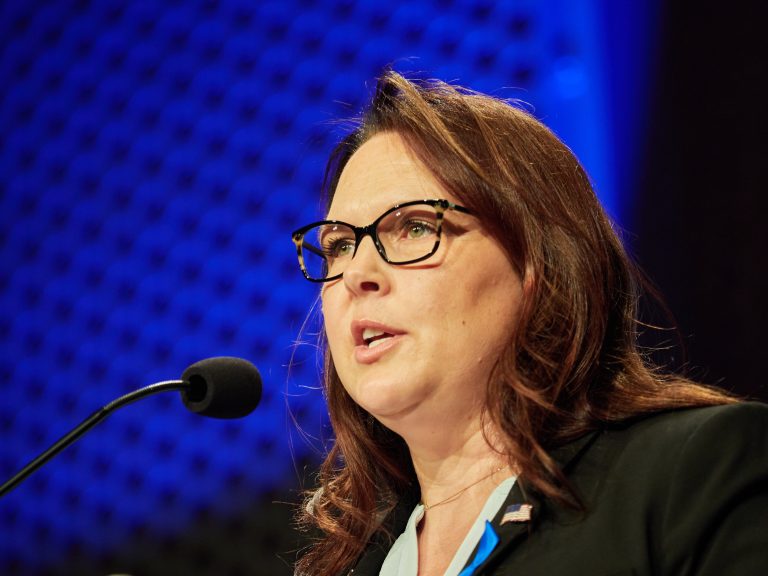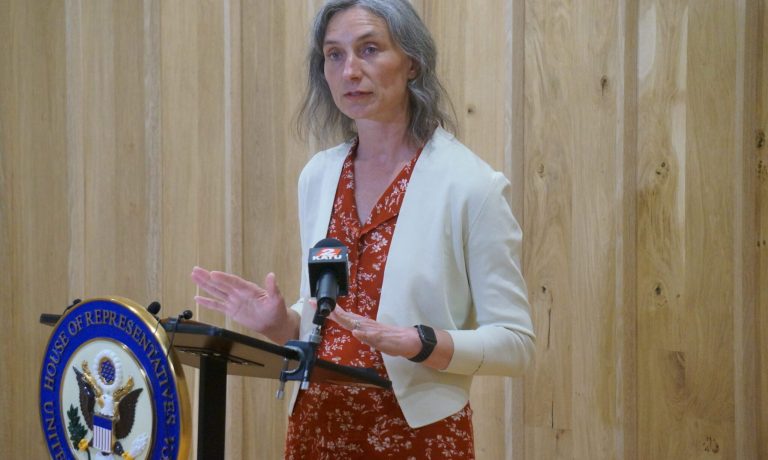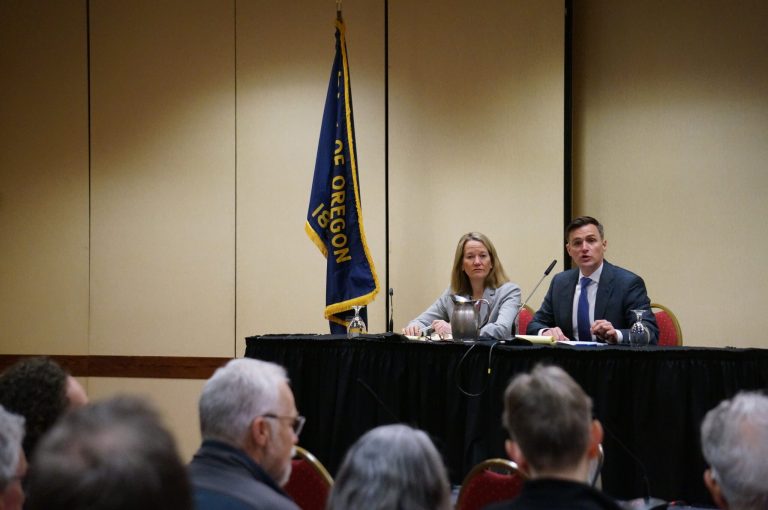Oregon is one signature away from ending unlimited campaign contributions

More than twenty years ago, Tim Knopp thought he and Democratic colleague Mark Hass would pass campaign finance reform through the state Legislature.
The Bend Republican was the majority leader in the state House, and Hass was the Democratic whip. There was momentum nationally around campaign finance reform after then-U.S. Sens. John McCain, a Republican of Arizona, and Russ Feingold, a Democrat from Wisconsin, championed a federal law, the McCain-Feingold Act, that limited “soft money” contributions to political parties.
Knopp and Hass trusted that Oregonians wanted to limit money in politics, and they assumed as leaders in their caucuses they could easily pass a law.
“We got chopped off at our knees by our caucuses and the lobby on both sides,” Knopp said.
Two decades later, Knopp, now the Senate minority leader, stood on the Senate floor imploring colleagues to vote for campaign finance limits – a topic he normally would have thought would be too big of an issue in a five-week even-year legislative session.
But a flurry of negotiations among labor unions, the business lobby, good government groups and legislators over the past few days and weeks made possible something that seemed impossible just a few days prior: The Oregon Legislature overwhelmingly voted to pass a campaign finance reform proposal. House Bill 4024 now only needs Gov. Tina Kotek’s signature to become law and cap contributions to candidates and political action committees for the first time in decades.
If Kotek signs the bill, individuals and corporations would be limited to giving a candidate no more than $3,300 per election, or $6,600 for a candidate who appears in both the primary and general, beginning Jan. 1, 2027. Small donor political committees that accept up to $250 per year from individuals, could give up to $10 per donor per election to statewide candidates and $5 per donor per election for other candidates. And unions and other membership organizations could give $26,400 per election to a statewide candidate and $13,200 per election to non-statewide candidates.
Assuming Kotek signs it, backers of two initiative petitions said they’ll stand down and avoid a bitter fight at the November ballot. Initiative Petition 9, backed by nonpartisan groups including Honest Elections Oregon, Common Cause and the League of Women Voters, would have installed stricter limits. Initiative Petition 42, backed by labor unions and progressive groups, would have created limits while still allowing large donations from unions and small donor committees.
“This barely crossed the threshold of acceptable, but we were being threatened with something much worse,” said Dan Meek, an attorney with Honest Elections Oregon.
Mixed reviews
Sen. Jeff Golden, one of the Legislature’s most outspoken advocates for campaign finance reform, said he was sad to vote against the proposal, but it didn’t do enough to ensure transparency and limit the ability of large donors to influence campaigns. The Ashland Democrat joined five Republicans in voting against the bill in the Senate.
“What I most want is what I most wanted when I filed for this office six years ago: real campaign finance reform for this state, reform that offers Oregonians what they want,” Golden said.
Sen. Elizabeth Steiner, D-Portland, begrudgingly voted for the bill, saying she thought Oregon’s elections are already transparent and it’s easy to follow money in ORESTAR, the state’s campaign finance database. Steiner, who came under criticism for proposing an unsuccessful wildfire funding proposal that would have saved the timber industry millions of dollars after she accepted $24,000 in campaign contributions from the industry, also bristled at suggestions from some people who provided testimony that campaign contributions could sway lawmakers.
“I frankly resent the implication that I can be bought and paid for or that any of you can be bought and paid for,” Steiner said.
She warned that implementing a new system would mean the Legislature has to send more funding to the Secretary of State’s office.
“I’ll vote for this bill because it beats the heck out of the alternatives, but I don’t think Oregonians are getting what they think they’re getting,” she said.
Oregon Capital Chronicle is part of States Newsroom, a network of news bureaus supported by grants and a coalition of donors as a 501c(3) public charity. Oregon Capital Chronicle maintains editorial independence. Contact Editor Lynne Terry for questions: [email protected]. Follow Oregon Capital Chronicle on Facebook and Twitter.
STORY TIP OR IDEA? Send an email to Salem Reporter’s news team: [email protected].

Julia Shumway is editor of Oregon Capital Chronicle and has reported on government and politics in Iowa and Nebraska, spent time at the Bend Bulletin and most recently was a legislative reporter for the Arizona Capitol Times in Phoenix. An award-winning journalist, Julia most recently reported on the tangled efforts to audit the presidential results in Arizona.



